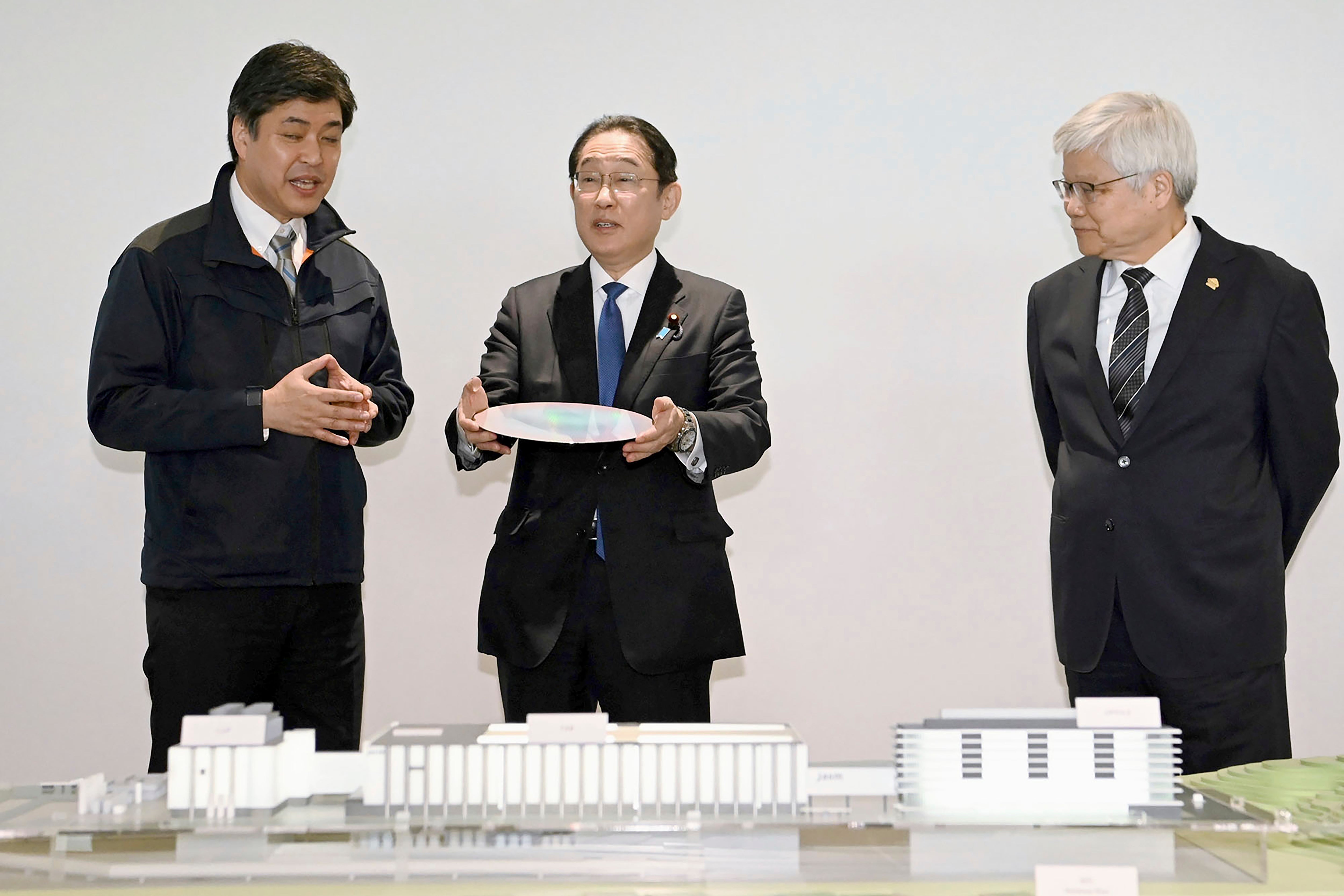Japanese leader visits new chip factory, stressing ties with Taiwan and support for key technology
Japanese Prime Minister Fumio Kishida visited a new semiconductor plant for which his government has pledged more than 1 trillion yen ($7 billion) of support to secure a steady supply of chips on Saturday

Your support helps us to tell the story
From reproductive rights to climate change to Big Tech, The Independent is on the ground when the story is developing. Whether it's investigating the financials of Elon Musk's pro-Trump PAC or producing our latest documentary, 'The A Word', which shines a light on the American women fighting for reproductive rights, we know how important it is to parse out the facts from the messaging.
At such a critical moment in US history, we need reporters on the ground. Your donation allows us to keep sending journalists to speak to both sides of the story.
The Independent is trusted by Americans across the entire political spectrum. And unlike many other quality news outlets, we choose not to lock Americans out of our reporting and analysis with paywalls. We believe quality journalism should be available to everyone, paid for by those who can afford it.
Your support makes all the difference.Japanese Prime Minister Fumio Kishida visited a new semiconductor plant for which his government has pledged more than 1 trillion yen ($7 billion) of support to secure a steady supply of chips on Saturday.
“I believe this project will have positive ripple effects throughout Japan. It is key for not only the semiconductor industry but also a wide range of businesses such as electric vehicles and electronics,” he said while touring the facility.
The new plant on the southwestern island of Kyushu, majority owned by the Taiwan Semiconductor Manufacturing Co., is the Taiwanese semiconductor giant's first in Japan.
Kishida also expressed sympathy to Taiwan following an earthquake that left at least 12 people dead.
Japanese companies like Sony, Denso and Toyota are investing in the TSMC subsidiary that opened the plant in February, although the Taiwanese giant retained an 86.5% stake in the Japan Advanced Semiconductor Manufacturing Company. The project underlines Japan’s hopes to regain its presence in the computer chips industry.
Four decades ago, Japan dominated in chips, with Toshiba and NEC controlling half the world’s production. That’s declined to under 10%, amid competition from South Korean, U.S. and European manufacturers, as well as TSMC.
Japan has recently earmarked about 5 trillion yen ($33 billion) to revive its chips industry, seeking to become less dependent on imports in the wake of pandemic-era shortages that affected auto production and other industries for months.
Ensuring an ample supply of the most advanced chips is vital with the growing popularity of electric vehicles, as well as artificial intelligence.
Private sector investment totals $20 billion for the plants in the Kumamoto region, southwestern Japan. The second plant is set to be up and running in three years. The two plants are expected to create 3,400 high-tech jobs directly, according to TSMC.
The plant is a bright spot for Kishida, whose popularity has plummeted amid a corruption scandal in his ruling Liberal Democratic Party.
Highlighting Japan’s ties with Taiwan and the U.S., Japan’s most important ally, is one way the prime minister can hope to boost flagging poll numbers. Kishida is scheduled to meet President Joe Biden in Washington next week.
China claims the self-governing island of Taiwan as its own territory and says it must come under Beijing’s control. The long-running divide is a flashpoint in U.S.-China relations.
Semiconductors have more recently become a strategic battleground in the U.S.-China relationship, as Washington has imposed export controls that limit sales of advanced microchips to Chinese companies, citing possible uses of such chips for military applications that include the hypersonic missiles and artificial intelligence.
TSMC is now building a second plant in the U.S. and has announced a plan for its first in Europe. But Japan, geographically closer to Taiwan, is an attractive option.
Tokyo is supporting other semiconductor projects nationwide, involving players including Western Digital and Micron of the U.S., and Japanese companies like Renesas Electronics, Canon and Sumitomo.
___
Yuri Kageyama is on X: https://twitter.com/yurikageyama